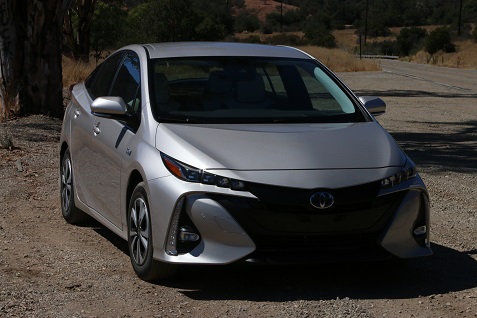The Pros and Cons of Buying a New Car

Cars are important. They are more than just a transport option. For many men, their car is their pride and joy, an extension of their self. Some even pay more attention to their car than they do their other half, which can cause a few issues. Nevertheless, whether your current car is close to your heart or not, if it’s time to invest in a new vehicle, you might be wondering whether it’s better to buy new or go for a used model. Let’s take a look at the pros and cons of each.
The Cost of Purchasing a Vehicle
A new car is not cheap. Some models can easily run into tens of thousands of dollars, so unless money is no object, it’s understandable that you might balk at paying for a brand new automobile. However, prices do vary from dealer to dealer, so it is worth shopping around if you have your heart set on a particular model. It’s possible to buy new cars on finance, which will spread the cost out over several years. You will be expected to put a down payment on the car, but if you’re exchanging your old vehicle, this would go some way towards the payment.
New car finance is often very competitive. Car dealers like to sell new cars, so they offer great incentives to buyers, including interest free deals and free accessories or upgrades. Don’t rush into the first deal you see, however, as it is worth haggling to secure the best price.
Used cars are cheaper. The older the car, the cheaper it will be. New cars depreciate as soon as you drive them off the lot, so you could pick up a used car that is only a few months old, with hardly any kilometers on the clock, for considerably less than the same vehicle brand new.
Dealers usually offer finance on used cars, but the terms may be less competitive. For example, you are unlikely to see any interest free deals on a used car. However, since you will be spending less, this may not matter.
Maintenance
New cars are generally maintenance free, apart from checking oil, fluids and tire pressures, etc. Most new cars come with a manufacturer’s warranty that covers repairs, so you don’t need to worry about expensive maintenance costs. You will still need to have your vehicle serviced, however, which could be expensive if the dealer insists on carrying out the service.
Older cars need more maintenance. Most cars need parts replaced after a few years, so you can expect to pay out more in maintenance costs. However, you are free to shop around for the best prices, which should save you money. You are also free to do the work yourself if you have the skills.
With used cars, there comes a point when it is no longer economical to carry out repairs, so bear this in mind if you buy a wreck of a car. The cheaper the car, the more work it will need. Ask yourself, can you afford to spend money on this vehicle, or is it worth paying more for a better vehicle?
Running Costs
Cars cost money to run. They need fuel, insurance and other miscellaneous items. Add on maintenance costs and it soon becomes an expensive luxury. But if you need a vehicle to get to work, you have no choice but to buy a car. In this matter, there isn’t a lot to choose from, but one thing to watch out for is that older cars are less economical to run, so you will spend more on fuel when running an older vehicle. Technology has given us far more options with new cars. Choose from hybrids or electric cars.
When it comes to car accessories, these need to be included in the running costs. It won’t matter if your vehicle is old or new, although you won’t need to look at SUV car covers if you have just bought an old wreck. Those are best reserved for brand new cars.
If you still can’t decide whether that new car is worth the expense, sit down and make a list of the purchase cost, maintenance costs and running costs. Don’t forget to factor in the cost of insurance, as this will vary between new and older vehicles.
Ultimately, whether you buy new or not depends on how much you love your car. Let’s not forget that the latest model always has more bells and whistles than a four-year old model.
Related Posts
Posted in: Lifestyle
Tags: buying a new car





